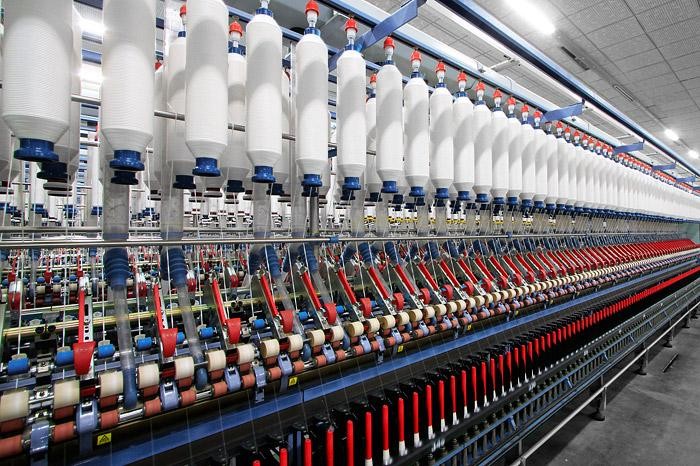The Global Medical Courier Service Market size was estimated at USD XX billion in 2021 and is expected to hit around USD XX billion by 2031, poised to grow at a compound annual growth rate (CAGR) of XX% from 2022 to 2031.
The Global Medical Courier Service Market refers to the worldwide industry that encompasses the transportation and delivery of medical and healthcare-related items, including diagnostic specimens, blood samples, pharmaceuticals, medical equipment, organs for transplantation, and other critical medical supplies. Medical courier services play a vital role in ensuring the timely and secure movement of these sensitive and time-critical items between healthcare facilities, laboratories, research centers, pharmacies, and patients.
The market for medical courier services has grown significantly in recent years due to various factors such as the increasing demand for healthcare services, the rise in diagnostic testing and medical research activities, the globalization of healthcare, and the need for efficient and specialized logistics solutions in the medical sector.
Medical courier service providers typically offer specialized handling, packaging, transportation, and delivery solutions tailored to the specific requirements of medical shipments. They adhere to stringent regulations and quality standards to ensure the integrity, safety, and confidentiality of the transported medical items. These services often involve specialized vehicles, trained couriers, temperature-controlled packaging, chain of custody documentation, and tracking systems to monitor the location and condition of the shipments in real-time.
The global market scenario for medical courier services is witnessing several notable trends. Firstly, there is a growing emphasis on personalized medicine and precision diagnostics, leading to increased demand for specialized courier services that can handle and transport sensitive samples and genetic materials with utmost care and efficiency.
Secondly, advancements in technology and the rise of e-commerce have impacted the medical courier market. There is a greater reliance on digital platforms for scheduling, tracking, and managing medical shipments, improving transparency and customer experience. Additionally, the integration of IoT and real-time tracking systems has enhanced supply chain visibility and enabled more precise delivery timelines.
Thirdly, the COVID-19 pandemic has significantly impacted the market. The urgent need for vaccine distribution, diagnostic tests, and medical supplies has created a surge in demand for medical courier services globally. The pandemic has also accelerated the adoption of contactless delivery and stringent safety protocols in the transportation of medical goods.
Lastly, sustainability and eco-friendly practices have gained prominence in the market. There is a growing focus on reducing carbon emissions and implementing green logistics solutions, such as electric vehicles and optimized delivery routes, to minimize the environmental impact of medical courier operations .
Market Segmentation:
Market Breakup: By Service Type
- Diagnostic Specimen Delivery
- Pharmaceutical Transportation
- Medical Equipment Logistics
- Blood And Organ Transportation
- Clinical Trial Logistics
Market Breakup: By Delivery Type
- Same-Day Delivery
- Next-Day Delivery
- On-Demand Delivery
Market Breakup: By End User
- Hospitals
- Clinics
- Diagnostic Laboratories
- Research Institutes
- Pharmaceutical Companies
- Blood Banks
- Organ Transplant Centers
Market Breakup: By Courier Type
- Logistics Companies
- Specialized Medical Courier Firms
- Express Delivery Providers
- Courier Aggregators
Regional Analysis
The size and scope of the global Medical Courier Service industry vary by region and are important and expanding. Below is a quick summary of the industry’s regional analysis:
North America: North America, comprising the United States and Canada, is a significant market for medical courier services. The region has a well-developed healthcare infrastructure, advanced medical research facilities, and a high demand for diagnostics, pharmaceuticals, and medical equipment. Stringent regulations and quality standards, such as those set by the FDA in the United States, influence the market landscape. The presence of key players and technological advancements contribute to market growth, with a focus on digital platforms and automation.
Europe: Europe has a mature market for medical courier services, with countries like Germany, the United Kingdom, France, and Italy leading the way. The region has a strong healthcare system, advanced medical facilities, and a high level of healthcare expenditure. The market is driven by factors such as an aging population, increased medical research activities, and the demand for personalized medicine and precision diagnostics. Regulatory frameworks, such as Good Distribution Practice (GDP) guidelines, play a significant role in shaping the market.
Asia-Pacific: The Asia-Pacific region is experiencing rapid growth in the medical courier service market, driven by factors such as a large population, increasing healthcare expenditure, and the growing demand for improved healthcare infrastructure. Countries like China, India, Japan, South Korea, and Australia are major contributors to market growth. The market is characterized by a rising focus on healthcare digitization, the adoption of advanced logistics technologies, and the need for efficient supply chain management in the healthcare sector. The expansion of e-commerce and online pharmacies further boosts market growth in the region.
South America: South America, including countries like Brazil, Argentina, and Colombia, has a growing market for medical courier services. Factors such as improving healthcare infrastructure, rising medical tourism, and increasing investments in healthcare contribute to market growth. The region faces challenges related to logistics infrastructure and regulatory frameworks, but efforts are being made to overcome these barriers and improve the transportation of medical goods.
Middle East & Africa: The Middle East and Africa region are witnessing significant growth in the medical courier service market. Factors such as improving healthcare access, increasing healthcare spending, and advancements in medical technology contribute to market growth. The region has a diverse market landscape, with variations in healthcare infrastructure and regulatory frameworks across different countries. Key markets in the region include Saudi Arabia, the United Arab Emirates, South Africa, and Nigeria.
Market Breakup By Region
- North America
- Europe
- Asia Pacific
- Latin America
- Middle East and Africa
Competitive Landscape
The Medical Courier Service Industry competitive landscape provides details by competitor. Details included are company outline, company financials, revenue generated, market potential, investment in research and development, new market initiatives, worldwide occurrence, production sites and facilities, production capacities, company strengths and weaknesses, product launch, product width and breadth, application dominance. The overhead data points providing are only related to the businesses’ focus related to Medical Courier Service marketplace.
Latest reports:











